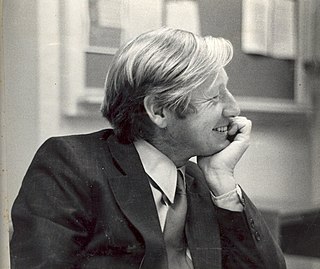A Quote by Carl Friedrich Gauss
A great part of its theories derives an additional charm from the peculiarity that important propositions, with the impress of simplicity on them, are often easily discovered by induction, and yet are of so profound a character that we cannot find the demonstrations till after many vain attempts; and even then, when we do succeed, it is often by some tedious and artificial process, while the simple methods may long remain concealed.
Quote Topics
Related Quotes
In a way, the great thing about Batman is that there are so many of him that you can usually find one you like. Often, it's the one that was current when you began following the character. But though you like the Batman of one decade, you may well despise (and not recognize the validity of) the Batman of some other decade. If you've been a fan of the character for forty years, you probably hate half of them.
The kind of knowledge which is supported only by observations and is not yet proved must be carefully distinguished from the truth; it is gained by induction, as we usually say. Yet we have seen cases in which mere induction led to error. Therefore, we should take great care not to accept as true such properties of the numbers which we have discovered by observation and which are supported by induction alone. Indeed, we should use such a discovery as an opportunity to investigate more exactly the properties discovered and to prove or disprove them; in both cases we may learn something useful.
And as this is the obvious appearance of things, it must be admitted, till some hypothesis be discovered, which by penetrating deeper into human nature, may prove the former affections to be nothing but modifications of the latter. All attempts of this kind have hitherto proved fruitless, and seem to have proceeded entirely from that love of simplicity which has been the source of much false reasoning in philosophy.
The trials and pressures of life--and how we face them--often define us. Confronted by adversity, many people give up while others rise up. How do those who succeed do it? They persevere. They find the benefit to them personally that comes from any trial. And they recognize that the best thing about adversity is coming out on the other side of it. There is a sweetness to overcoming your troubles and finding something good in the process, however small it may be. Giving up when adversity threatens can make a person bitter. Persevering through adversity makes one better.
In experimental philosophy, we are to look upon propositions inferred by general induction from phenomena as accurately or very nearly true, notwithstanding any contrary hypotheses that may be imagined, till such time as other phenomena occur by which they may either be made more accurate or liable to exceptions.
One of the issues I think is very important, in many communities of color, there's a stigma about mental health. We find that the shaming that comes from acknowledging that one may have some issues that may relate to mental health, often people are not willing to go and seek additional help because of that shaming or that cultural stigma that's associated with it. And I think that we need to make this change in how people approach mental health.
I now want to tell three stories about advances in twentieth-century physics. A curious fact emerges in these tales: time and again physicists have been guided by their sense of beauty not only in developing new theories but even in judging the validity of physical theories once they are developed. Simplicity is part of what I mean by beauty, but it is a simplicity of ideas, not simplicity of a mechanical sort that can be measured by counting equations or symbols.
In a monetary system, most of us live near our work with a house, car, and lifestyle we can afford (or, all too often, cannot afford), rather than the one we prefer. We are only as free as our purchasing power permits. Even many wealthy people today select a residence mainly to impress others with their status. Lacking a true sense of self worth, many live to impress others.
The problem with kitsch is that it is all too profound, manipulating deep libidinal and ideological forces, while true art knows how to remain at the surface, how to subtract it's subject from it's deepest context of historical reality. The same goes for contemporary art, where we often encounter brutal attempts to return to the Real, to remind the spectator or reader that he is perceiving a fiction, to awaken him from a sweet dream.







































